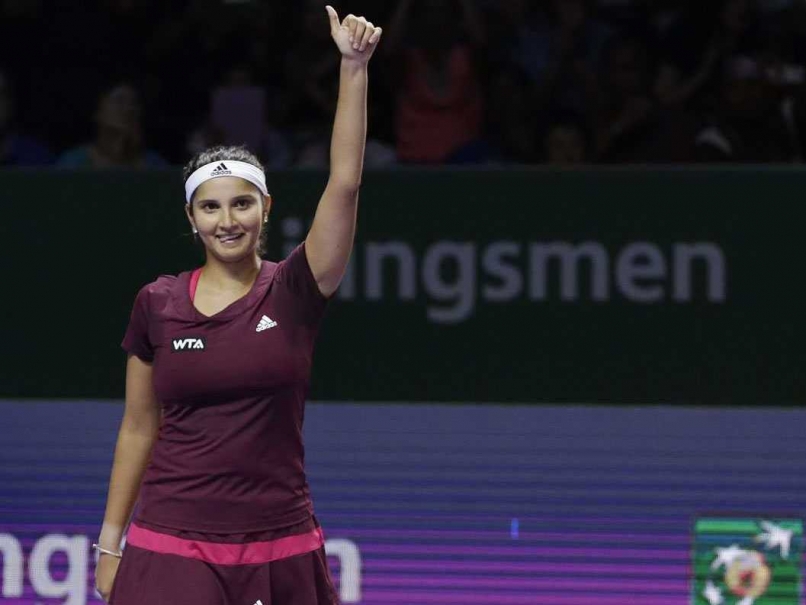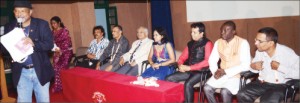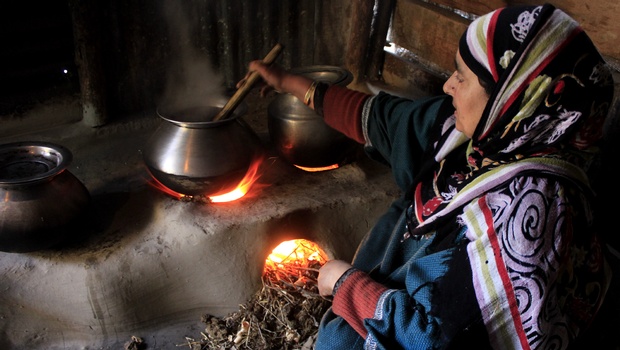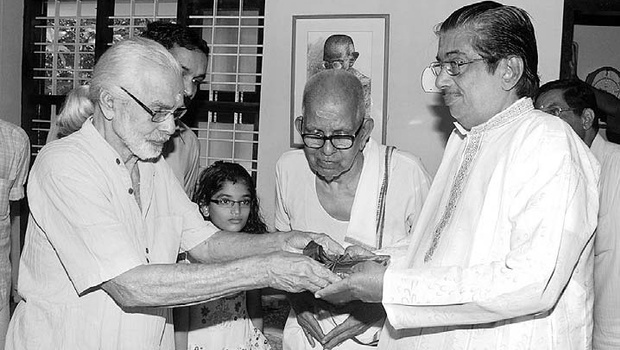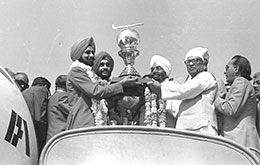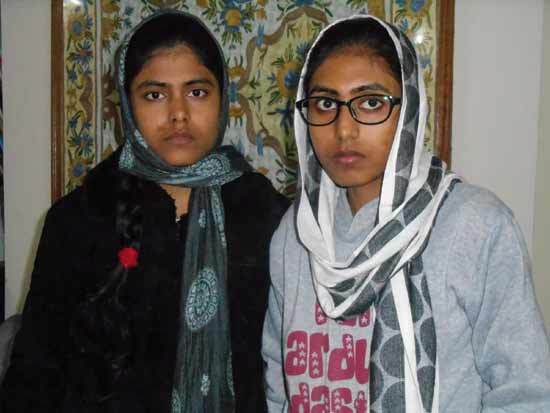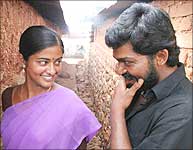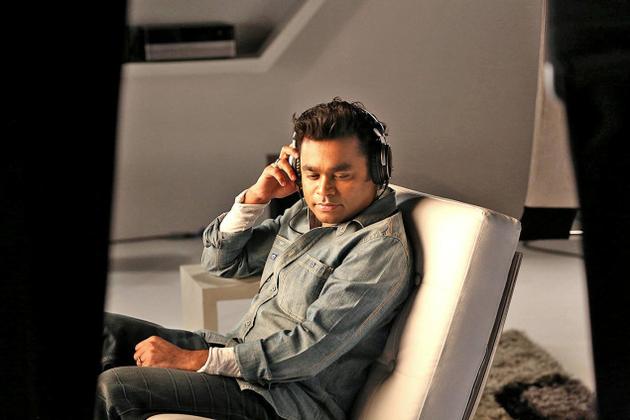
A.R. Rahman talks about his trendsetting musical journey, his forays into other areas of filmmaking and the inexorable charm of being himself
Allah Rakha Rahman is relaxed, worried and anxious — all at the same time.
As a composer, he’s happy; his Mental Manadhil from O Kadhal Kanmani (OKK)is doing well and the rest of the album will be out on April 1. As a son, he’s concerned; his mother took ill recently and is still recuperating. As a producer, he’s eager; things are neatly falling into place with his first project.
When I catch up with him on Thursday evening at his Kodambakkam studio, a few hours after India has lost to Australia in the cricket World Cup, he’s a picture of poise. In an hour-long interview, the musician — clad in a simple brown kurta and jeans — opens up on upcoming releases, working for the famed Iranian director Majid Majidi, his relationship with Ilaiyaraaja and life so far.
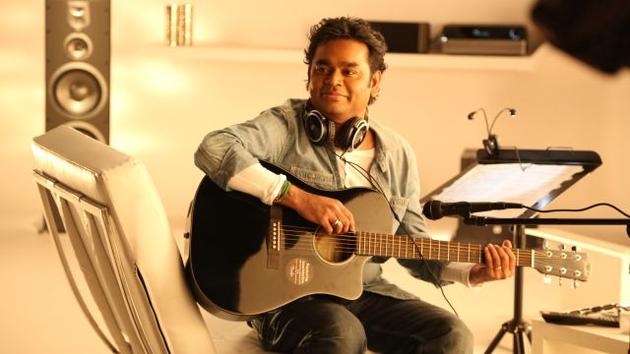
Your latest release, Mental Manadhil, which you’ve written, composed and sung is almost a sensation. How does it feel?
It’s supposed to be a light-hearted song. Lyricist Vairamuthu was off on a holiday and Mani wanted a song immediately. The two of us had already written Endrendrum Punnagai in Alaipayuthe and so, we plunged into that zone again.
What is it about Mani Ratnam that brings out the best in you?
With him, there are many-layered feelings. He introduced me to films, as you all know, but now, the three of us — Mani, Vairamuthu and me — have become a brand. Even if we want to be complacent, we cannot because of people’s expectations. It works like a trigger. We have done our bit in the last few years, but because people expect so much, we want to give them what they we want.
I was told that the three of you even have serious disagreements during composing sessions. Elaborate on that with respect to OKK…
I don’t like certain things. Sometimes, you have to compromise words for the sound — the sound is very important, it de-clutters from the words. People don’t have as much bandwidth as before; we have to catch their attention immediately.
In one of the songs in OKK (Naane Varuvaen), we had an antara that was beautiful but had very complicated words. So, instead of that, we came up with repetitive lyrics. The word (chinnanchiru) repeats itself again and again. It’s like the formula used in traditional performing arts. Take thumris, for example. They have the same thing again and again…. because the tunes get complicated, the words cannot. In songs like Yaad Piya and More Sajni, we keep hearing the same line because it’s easier for the mind to concentrate.
You’re writing a screenplay, producing a Hindi film… why are you branching out into areas other than music?
I want to see if my growth as an artiste can fill the void that I feel is missing in India. Mostly, our industry is driven by what’s going to click commercially. When something clicks, it is replicated. Very few people do it for the art. I do not want to be both — I want to find that balance between what people like and the lost flavour in our music. I’ve been working on it for four years to see if we’ve covered it in all aspects.
How disappointed are you when your films don’t do as well as expected? We hadKaaviya Thalaivan and Lingaa last year…
See, I made a mistake by doing too many films. I should have said no to some of them. As a team, our backs were broken. There was intense pressure, sleepless nights — I feel it’s just not worth anymore. Life has given me something that what I’m drawn to like naturally… when you’re overworked with too many demands and deadlines, it’s not a good thing.
So, you’re admitting that Lingaa was one of them?
We had to finish things fast to match the film’s release on Superstar’s birthday. People know exactly what happened with respect to that film. We had to deliver in three languages — Tamil, Telugu and Hindi — check the sound mixes, do the background score and everything. Simultaneously, I was also doing Kaaviya Thalaivan. It all happened came at once… it was so unfortunate.
There are a group of people who feel say your music now isn’t as good as it was in the 90s…
I am flattered; at least they like something of me! (laughs)
When you hear such comments, what goes through your mind?
As a creative person, I have to move on. There are fans for what I did then, and there are fans for what I’m doing now. You cannot go to a yesteryear actress and say, ‘I don’t like you anymore’, can you?
You worked with Vasanthabalan recently. You’re working with Vikram Kumar this year. Why are you going for newer combinations while you can safely opt for time-tested ones?
After a while, we take some people for granted. This is a good and a bad thing. With people like Mani or Ashutosh Gowarikar or Shankar, it’s never a bad thing because they present new challenges and anyway do movies once in two years. New directors give me the option of discovering something afresh.
What’s the status on Muhammad, your Iranian film, and why did you take that up?
It’s still a work in progress because the movie needs to be edited. I’ve been a big fan of Iranian films, especially Majid Majidi’s. Suddenly, one day, Imtiaz Ali called me to say that UTV got a message from Majidi that he wanted me for his project. I was like, ‘Wow’. It will be one of the most ambitious in the history of cinema.
But it wouldn’t have been easy…
His expectations were very, very high. In a way, it was good because I wanted to learn their school of thought. I wanted to know how they produce, how they way they write their scenes. I’ve been to Iran twice for two trips and it was an amazing experience.
You’re busy travelling all over the world, are you able to spend enough time with your three children?
We watch a lot of movies together, especially 3D animation films.
Is your mother still your emotional anchor?
That’s what you learn from life… where your priorities ought to be and why you should respect every family member. Amma has just recovered from a serious illness — she’s better now, but still, it’s not like before….
From being just a boy from Habibullah Road, Madras, to an international composer… how have you changed to fit the bill?
When climate and time zones change, everything changes. There, I’ve three more layers of clothing. The ease of resources, with respect to studios, we have here isn’t available there at times. All the musical notes need to be prepared in advance, not like how it works here. But then, you adapt. It took me 10 years to get used to all that.
It’s well-known that you played for Ilaiyaraaja before branching out individually. Are you still in touch with him?
The last I met him was at a music function. See, when I’m abroad, I bump into other composers all the time — at screenings or events. It’s unfortunate that Chennai isn’t that much of a social place for me; I’m usually caught up in my own work. And then, there’s family, the school… there’s not much social time. We have the respect in our hearts.
Do you read a lot?
(Thinks for a while) The last book that I read was… the screenplays of The Hundred Foot Journey andPele. Those are books anyway.
Coming back to music, there are several exciting new composers. There’s Santhosh Narayan, whom you’ve spoken highly of, and Anirudh and G.V. Prakash. In Hindi, there are many others. Would you say music is in safe hands?
There’s much more to explore in music. The demands should not be to make just hit songs. Each composer has to set a rule for himself to create timeless music. Why do we love works of the past? Because some of them are timeless; audiences still have a connection with them. That’s what I try to do and that’s what I’d like younger composers to do too.
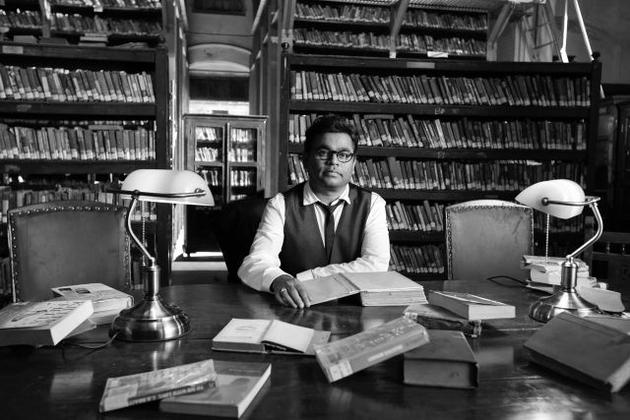
Your school, KM Music Conservatory, has come a long way since its inception. What are your future plans for it?
It was a huge task for us to have a new building and now we have that. It seems to be a great place to hang out and study music. Sometimes, I feel jealous of the kids studying in the school because I never had such a place while growing up. We want the students to serve in the entertainment business with a unique identity… and yes, make people smile.
You say you’re always running against time, but still do your daily namaaz (prayers)…
That’s my oxygen.
So, everyday life must be a balance…
You have to keep everything you do in multi-tracks. There’s no ‘I will do that tomorrow’. That’s what I’ve realised of late. I don’t say ‘I’ll do my prayers tomorrow, compose for this beautiful idea tomorrow, or say I love you tomorrow…’ If you want to do something, do it now.
source: http://www.thehindu.com / The Hindu / Home> Features> MetroPlus / by Srinivasa Ramanujam / March 27th, 2015
